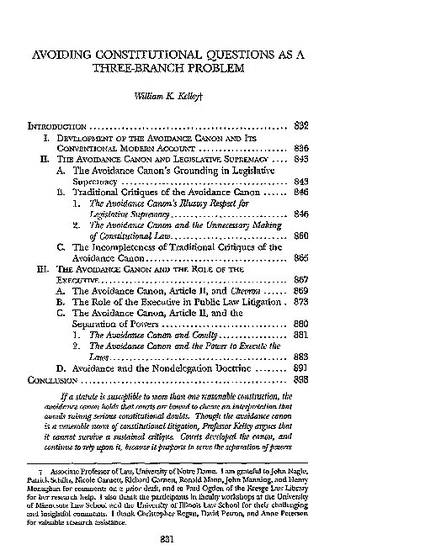
This article criticizes the cardinal rule of statutory construction known as the avoidance canon - that statutes must be interpreted to avoid raising serious constitutional questions - as failing to respect the proper constitutional roles of both Congress and the Executive. It argues that the avoidance canon in practice cannot be grounded in legislative supremacy, which is the common justification for it offered by the Supreme Court, because it assumes without foundation that Congress would always prefer not to come close to the constitutional line in enacting statutes. Instead, the avoidance canon creates pressure for courts to adopt statutory meanings that do not fairly reflect the legislative bargains struck in Congress. The article continues by arguing that the avoidance canon also impinges on the role of the Executive by disregarding its best judgment as to statutory meaning, arrived in the course of discharging the constitutional function of executing the law, because that judgment might be unconstitutional. Of course, if a statute passed by Congress, or a statutory interpretation proffered by the Executive, is actually - as opposed to possibly - unconstitutional, a court should not hesitate to say so in the course of deciding a case. On the whole, however, the article concludes that the separation of powers would be better served by the Supreme Court's recognizing that there is as much danger of judicial usurpation from avoiding constitutional questions as deciding them.
Available at: http://works.bepress.com/william_kelley/1/

Reprinted with permission of Cornell Law Review.